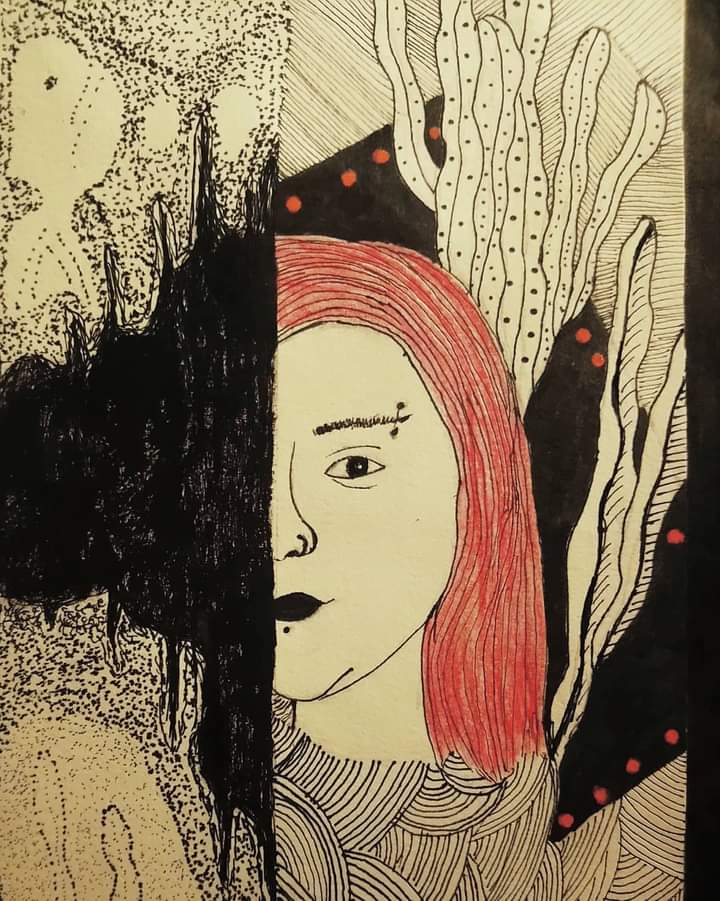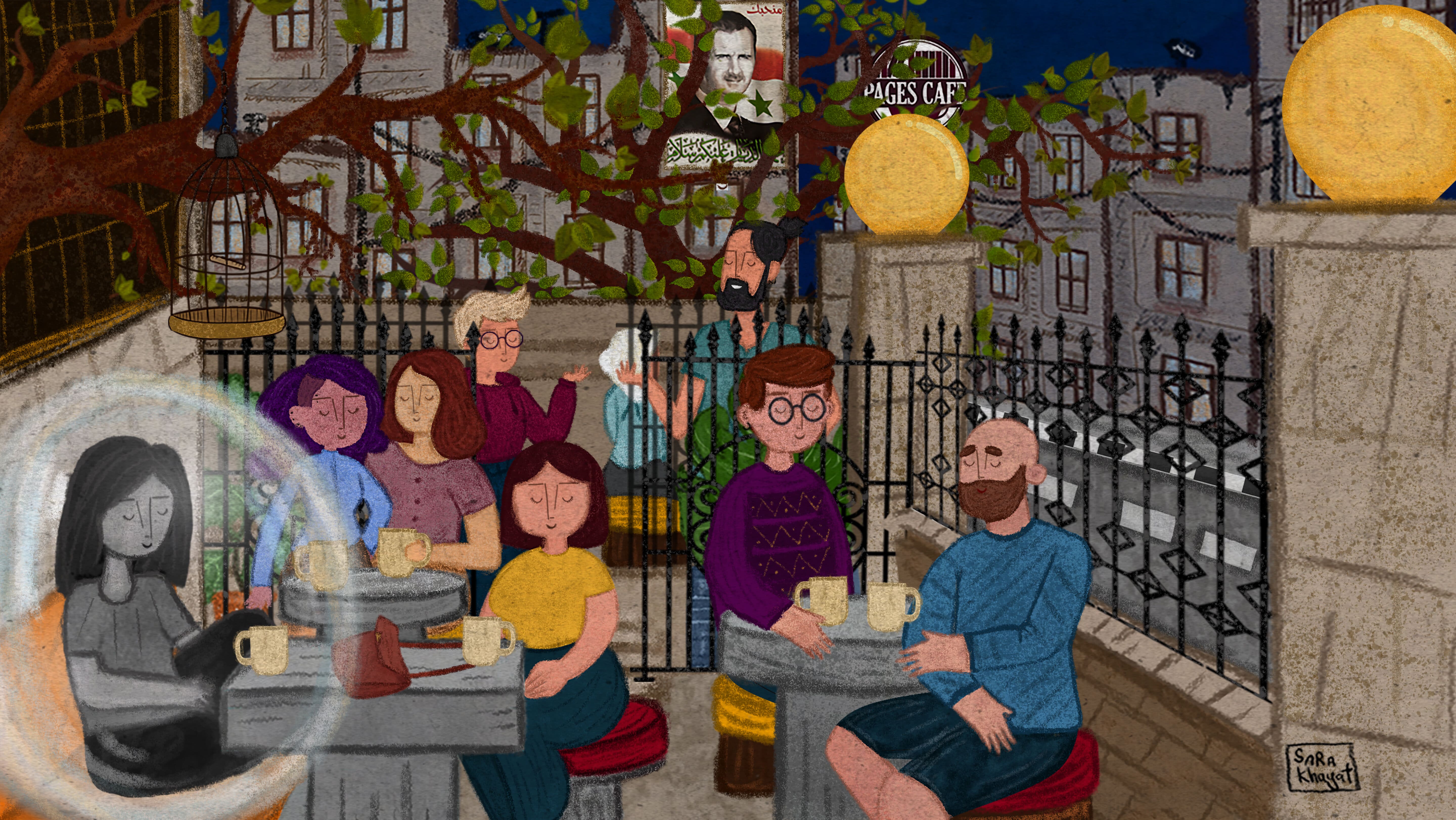This art piece is part of our series on LGBTIQ Syria, guest edited by Fadi Saleh and published with funding from Hannchen-Mehrzweck-Stiftung.
The statement “difference is not a crime” went viral on the internet earlier this year, after the death of Sarah Hegazi, an Egyptian activist. Many Syrians used it as a profile photo, or simply shared it on their social media accounts. This made me search my memory and wonder: when did I know that I was different, before even knowing whether it was a crime or not?
I remembered a small cafe in a very well-known area in Damascus. It was the space where I started breaking out of the tight circle in which I was raised. I met new people and read new books. All of this was happening during the revolution.
A while after that, I left the country and started to make new friends in the diaspora, friends who belong to the Syrian LGBTIQ community. To ward off the coldness of exile, we spent most of our nights reminiscing and remembering. I was surprised to discover that the cafe back in Damascus was the place where they regularly met to talk about their pain, dreams and experiences.
What was most shocking about this was that, at the time, I never noticed them and never knew that there existed a whole community of various genders and sexualities, from different generations, a community that was, still is and will always be there.
Unfortunately, I had been living in a big bubble that, despite being transparent, still blocked feeling and knowing about its existence.
A few weeks ago, Assad was giving a speech at al-Othman Mosque during the annual meeting of al-Awqaf Ministry. In his speech, he was spewing misinformation about and criminalizing personal freedoms. After listening to him, I knew that I was raised in that place, a place where the head of state and the “protectors of the homeland” poisoned our ideas, generation after another, in order for their authority and dictatorship to continue, and locked us up in bubbles that estranged us from each other and from ourselves.





